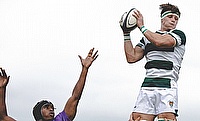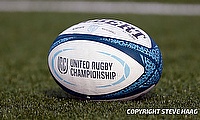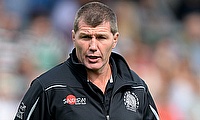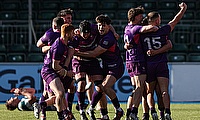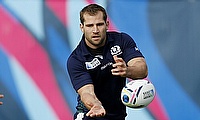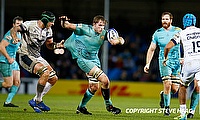Exclusive – Edinburgh lock Sam Skinner on how BUCS rugby Exeter University shaped his career
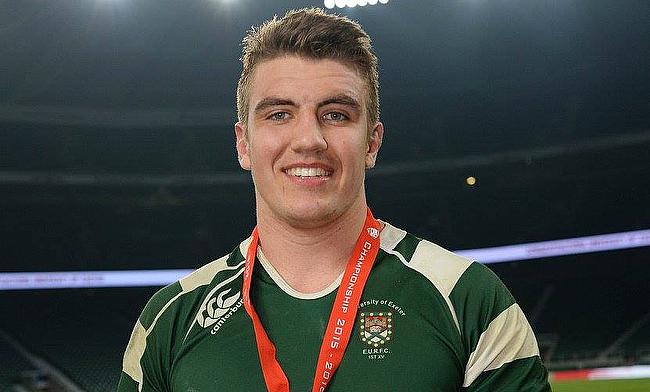
©Mike Powell/EURFC
Sam Skinner in an Edinburgh shirt is still a distinctly odd sight. For eight years he donned Exeter Chiefs colours, helping the Gallagher Premiership side to two domestic titles and a Champions Cup crown.
He sits across the table at the Heineken Champions Cup launch event in Buckinghamshire, the lock forward going through the rigmarole of photo shoots, creating social media content and speaking to speccy journalists.
Frustratingly for the 27-year-old, he may well have to watch as his teammates open up their Champions Cup campaign against Saracens from afar, a foot injury sustained for Scotland against Australia at the start of the Autumn Nations Series keeping him out of action for the past month.
“For me personally, it was mainly that I’ve been born and bred Exeter,” he said of his move to Edinburgh, “went to uni there, played rugby there for 27 years and at some point, I got an itch to try something new.
“Truth be told, I kept going to the same nightclub and I was like ‘I need to get out of here at some point’. I didn’t just want to move for the sake of it, and Edinburgh had all the green ticks; in terms of Scotland, in terms of the way they play, the friendships I had already made there.
“So, when I got the call around this time last year, I thought about it, and it just felt right. So far is has been good.”
Had an extra spring in your step being in a new environment?
“It’s exactly how you put it; an extra little spring in your step,” Skinner said, “you don’t want to say that because I was giving 100 per cent at Exeter, but actually when you are in a new environment, it just forces you to be your best self and that’s the freshen up I needed and I am really enjoying that aspect of it for sure.”
Qualifying to play for Scotland thanks to his father from Ayr, a move north of the border was in no short part due to Skinner’s international ambitions. Even so, he is a player very much forged in Devon, having attended Torquay Grammar School before attending the University of Exeter, who he captained to a BUCS Championship in 2016.
Saying that he doesn’t tune into BUCS Super Rugby games every Wednesday but does keep up to date with the latest goings on at Topsham, Skinner certainly has an affinity for the university game. It is where his own talents were unearthed and polished before becoming a stalwart at Sandy Park.
Finishing his A-Levels in Torquay, Skinner’s intentions were to spend time travelling. He had flights booked for the Christmas of 2013, and a place waiting for him at Loughborough University the following September.
“Ben Passenger was my teacher at school, he sat me down and said, ‘I think you should try and give it a go’,” Skinner explained. “I was a relatively late developer and I had been off the radar for a bit.
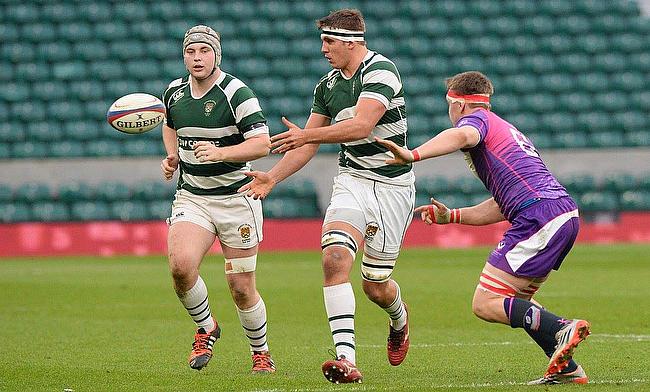
©Mike Powell/EURFC
“So, I went to Taunton Rugby Club, which was where Chris Brown and Tony Yapp – who both used to play for Exeter – and I didn’t really expect much to happen. Long story short, I actually played against the University of Exeter in a couple of preseason game and Chiefs offered me to come into training in the November of that year.
“I had already turned 18 at this point, I was supposed to go travelling and I had a place at Loughborough University. That was all set. They [Exeter Chiefs] said ‘this is your contract, and you have to go to the University of Exeter’ and I was like ‘yeah sweet, let’s go for it’ and I haven’t really looked back.”
Skinner laughs as he thinks back on his era of BUCS rugby which ended in BUCS Super Rugby inaugural season, the 27-year-old having fond memories of doing battle with Hartpury’s Seb Negri. Both are now senior international rugby players, the pair early examples of the production line that university rugby has quickly become.
In the years that have followed, the pathway from university rugby to the professional game has taken national headlines. This has come largely following the arrival of Alex Dombrandt at Harlequins, the No.8 shortly followed from Cardiff Met to London by Luke Northmore, while Hartpury’s Harry Randall and Stephen Varney have been capped by England and Italy respectively.
Exeter have been in the headlines recently with both Christ Tshiunza and Dafydd Jenkins both representing Wales, university rugby proving more than ever before that it has all the capability in the world to play a bigger role in player development.
“It is just time,” Skinner said when asked about what university rugby offers. “Potentially it is a bit different as a back – but not really – for me as a forward it gave me time to put size on, to bulk up and they have got great links with Chiefs.
“So the way it is being coached is very similar, which in the transition is very useful and then for life experience offers. It adds to your all-round personality, your character, you learn a lot away from rugby. It gives you something active to get engaged with away from the game. For me, personally, I loved that.
“It is hard work, there is a lot of times you forget the hard work and just enjoy the good times. There was times where I was like ‘jeez I have got a lot of work here’, but Exeter were really good at helping me manage that.
“I used to get extensions on extensions at university, they used to really help me out. I was really grateful for that. It just gave me time to develop and get myself right.”
Studying business and economics, Skinner certainly got that whole rounded experience where he was able to pursue professional rugby and his studies. It was a move that paid off completely, the 27-year-old now a full-fledged Scotland international and has a fist-class degree tucked into his back pocket.
“You get taught how to become an adult – well, you pretend to be an adult,” Skinner said. “And, you are in an environment where, for example, my housemates were four non-rugby players that would almost mock me for being a rugby player. I’d just get stereotyped by them.
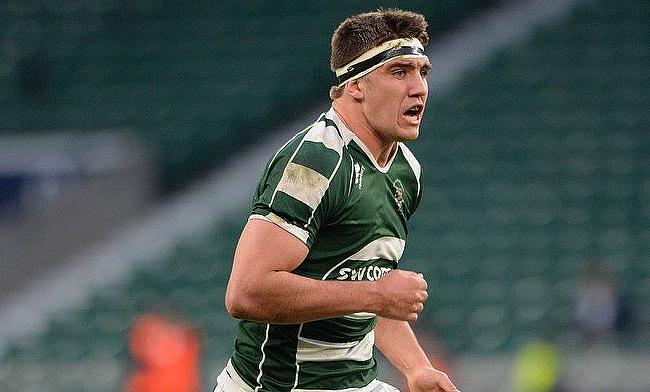
©Mike Powell/EURFC
“It’s quite funny, because if I was with the rugby lads, I would be considered quite intelligent and when I was with the lads at uni, I’d be considered an idiot. I wasn’t very intelligent, but I am not an idiot. I am somewhere in the middle.
“It’s funny how different those perceptions were, but it was refreshing because I kind of got to live two lives in a way and I really enjoyed that.”
In recent months, BUCS Super Rugby and the virtues of university rugby have been highly spoken of. BT Sport pundit Austin Healey put it at the heart of any restructuring of the academy system following outcries for reform in England, while 19-year-old Dafydd Jenkins’ rise from BUCS Super Rugby Cup winner with the University of Exeter to captaining Exeter Chiefs to then representing Wales has certainly got tongues wagging.
Last summer alone saw 12 players make the step up from BUCS Super Rugby to full-time professionalism in the Premiership and offering a clear avenue to being a pro. Very much an entirely different product to what it was in Skinner’s day just a short time ago, the Edinburgh man believes that the link between clubs and university is only growing.
“I think the connection is getting stronger now,” Skinner said. “When I was there, it actually wasn’t a huge connection. It was a bit of a risk I took. I only did uni because I didn’t want to put all my eggs in one basket.
“But now it is a real opportunity for players to go to uni to become a professional rugby player, rather than it being ‘I didn’t make it at an academy, so I am going to go to uni’. I can only speak on behalf of Exeter, but Cardiff Met have proved it, Durham have proved it, they much have great connections with local clubs.
“I think the biggest thing is that the Premiership clubs are now actively looking and engaging with the unis. They are actually using it as a breeding pool. Premiership clubs aren’t stupid, they don’t have to pay a player when he is at uni.
“They can watch him develop and bring him in. Especially in the current climate, it makes sense. I think that’s good, and it is such a good experience. I can’t rate it enough.”




